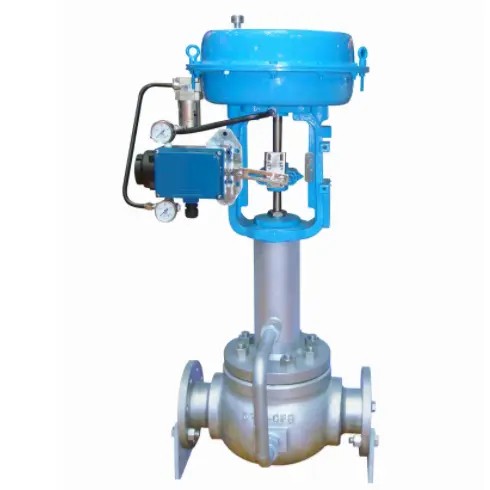


Steam Jacketed Control Valves: Precision Temperature Control for Critical Industrial Processes
Steam jacketed control valves are engineered to meet the stringent demands of temperature-sensitive industrial applications. They play a vital role in processes where maintaining precise temperature control is essential for operational efficiency, safety, and product quality. Particularly effective in handling fluids prone to crystallization, viscosity changes, or solidification, these valves provide reliable temperature management solutions across multiple industries.
In industries such as food processing, petrochemicals, and chemical manufacturing, controlling the temperature of process media is critical. When fluids cool too rapidly—such as oils, waxes, chemicals, or food ingredients—their physical properties can change drastically, causing thickening, solidification, or blockages. Steam jacketed control valves mitigate these challenges by circulating steam around the valve body, maintaining the medium’s temperature within optimal ranges for smooth flow and process continuity.
A key feature of steam jacketed control valves is the insulated jacket that envelops the valve body and bonnet, effectively stabilizing temperature. This thermal insulation is adaptable across various valve types, including:
Jacket Ball Valves
Jacket Plug Valves
Jacketed Butterfly Valves
Each design incorporates an advanced steam circulation jacket, which preserves temperature integrity to prevent process interruptions caused by fluid temperature fluctuations.
Steam jacketed control valves are built to deliver consistent temperature regulation and precise flow control. Key engineering highlights include:
ANSI B16.104 Leakage Compliance: Ensures minimal leakage, crucial for handling hazardous or costly fluids safely and efficiently.
Multi-Spring Diaphragm Actuator: A compact, powerful actuator delivering responsive force to adjust flow rates precisely, even when fluid viscosity changes with temperature.
This combination ensures smooth, reliable valve operation across a range of challenging industrial environments.
Thermal Insulation for Broad Applications
Insulated jackets maintain stable valve temperatures, preventing crystallization, thickening, or solidification. The jackets can be tailored to various valve designs, enhancing application flexibility.
Leakage-Resistant Design
Compliance with ANSI B16.104 standards ensures tight sealing and system integrity, reducing fluid loss and enhancing operational safety.
Compact, High-Performance Actuation
Multi-spring diaphragm actuators provide significant output force in a small footprint, enabling rapid and precise valve positioning to accommodate temperature-driven fluid property changes.
Superior Control of Temperature-Sensitive Media
By maintaining fluid temperatures within tight tolerances, these valves support smooth processing of challenging media prone to viscosity changes or solidification.
Food Processing:
Maintains temperature for oils, syrups, fats, and other ingredients, preventing crystallization and ensuring consistent product quality and compliance.
Petrochemical:
Controls flow of temperature-sensitive oils and gases, preventing solidification and ensuring steady pipeline and reactor operation.
Chemical Manufacturing:
Stabilizes temperature for reactive or volatile chemicals, enhancing process safety and efficiency.
Pharmaceuticals:
Preserves integrity and potency of sensitive ingredients by providing precise temperature control during manufacturing.
Cosmetics:
Ensures stability and quality of creams, lotions, and gels by maintaining optimal temperatures throughout production.
Oil and Gas:
Regulates temperatures in refining and transport processes, preventing viscosity fluctuations and blockages in pipelines.
Steam jacketed control valves are indispensable in industries where temperature stability of process fluids is critical. Their insulated design, stringent leakage control, and powerful actuation combine to prevent common temperature-related process issues such as crystallization, thickening, and solidification.
Offering versatility across multiple valve types and compliance with rigorous industry standards, these China Control Valves ensure smooth, safe, and efficient operation in demanding environments. As a result, steam jacketed control valves remain vital for optimizing production, enhancing safety, and maintaining quality in temperature-sensitive industrial processes.
